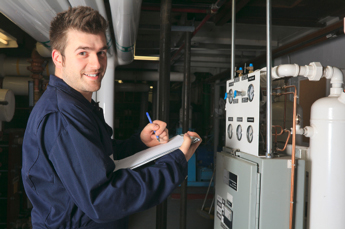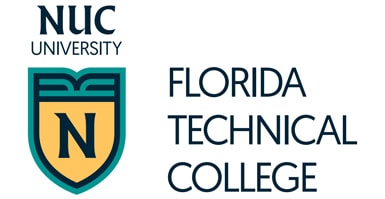HVAC Trade Schools Programs
By completing vocational training at an HVAC trade school, you can become well-equipped to join this fast-expanding and diverse trade. HVAC technicians frequently enjoy satisfying work, steady incomes, and consistent demand for their services.
HVAC Trade School Training
HVAC trade schools are set up to teach you what you need to know to begin working as an HVAC technician at the entry level. In some cases, completing college-level training can also shorten the length of an apprenticeship if you choose that route.
HVAC Trade Schools
Sponsored Listings



Lincoln Tech
- Heating, Ventilation, and Air Conditioning (HVAC)
Lincoln Tech
- Denver
- East Windsor
- New Britain
- Shelton
- East Point (Atlanta)
- Marietta (Atlanta)
- Melrose Park
- Indianapolis
- Columbia
- Mahwah
- Union
- Lincoln
- Grand Prairie
- Heating, Ventilation, and Air Conditioning (HVAC)
UEI College
- Mesa
- Phoenix
- Bakersfield
- Chula Vista
- Fresno
- Gardena
- Huntington Park
- Oceanside
- Ontario
- Reseda
- Sacramento
- Stockton
- West Covina
- Dallas
- Tacoma
- Heating, Ventilation, and Air Conditioning
United Education Institute
- Morrow, Georgia
- Stone Mountain, Georgia
- Las Vegas, Nevada
- Albuquerque, New Mexico
- Houston, Texas
- Heating, Ventilation, and Air Conditioning
YTI Career Institute
- York, Pennsylvania
- Heating, Air, Conditioning & Refrigeration Technology
Tulsa Welding School
- Jacksonville, Florida
- Tulsa, Oklahoma
- Dallas, Texas
- Houston, Texas
- Electro-Mechanical Technologies
- Refrigeration Technologies
The Refrigeration School
- Phoenix, Arizona
- Electro-Mechanical Technologies
- Refrigeration Technologies
Advanced Technology Institute
- Virginia Beach, Virginia
- HVAC and Refrigeration
- HVAC and Refrigeration with Service Management
All-State Career School
- Baltimore, Maryland
- Essington, Pennsylvania
- Pittsburgh, Pennsylvania
- Electrical Technology
- Heating, Ventilation, Air Conditioning and Refrigeration
Fortis
- Birmingham
- Dothan
- Mobile
- Montgomery
- Pensacola
- Port St. Lucie
- Atlanta
- Indianapolis
- Baton Rouge
- Lawrenceville
- Wayne
- Centerville
- Cincinnati
- Columbus
- Cuyahoga Falls
- Scranton
- Columbia
- Cookeville
- Nashville
- Houston North
- Houston South
- Salt Lake City
- Richmond
- HVACR
Stautzenberger College
- Maumee, Ohio
- Heating, Ventilation, Air Conditioning and Refrigeration
Rockford Career College
- Rockford, Illinois
- Heating, Ventilation, Air Conditioning and Refrigeration
Dorsey College
- Madison Heights, Michigan
- Roseville, Michigan
- Saginaw, Michigan
- Wayne, Michigan
- Woodhaven, Michigan
- HVAC Systems Technician
Porter and Chester Institute
- Bridgeport, Connecticut
- Hamden, Connecticut
- Waterbury, Connecticut
- Brockton, Massachusetts
- Chicopee, Massachusetts
- Worcester, Massachusetts
- HVACR (Heating, Ventilation, Air Conditioning and Refrigeration)
San Joaquin Valley College
- Phoenix, Arizona
- Electrical Technology
- Heating, Ventilation, Air Conditioning and Refrigeration
Eastwick College
- Nutley, New Jersey
- Heating, Ventilation, Air Conditioning, and Refrigeration Technology
Southern Technical College
- Auburndale, Florida
- Brandon, Florida
- Orlando, Florida
- Port Charlotte, Florida
- Sanford, Florida
- HVAC
Universal Technical Institute
- Avondale, Arizona
- Canton, Michigan
- Bloomfield, New Jersey
- Mooresville, North Carolina
- Austin, Texas
- Houston, Texas
- HVACR
Automotive Training Centres
- Surrey, British Columbia
- CFC Regulation Air Conditioning
- Ozone Depletion Prevention
Florida Technical College
- DeLand, Florida
- Kissimmee, Florida
- Lakeland, Florida
- Orlando, Florida
- Pembroke Pines, Florida
- South Miami, Florida
- Tampa, Florida
- HVAC/R
- HVAC/R with PLC
Benefits of HVAC Training at a Trade School
Learning from those in the know: You can get guidance from experienced instructors who understand industry-current practices and can challenge you to keep adding to your skill set.
Hands-on practice: Trade school HVAC programs often give students lots of practical experience with the types of tools and situations that technicians commonly deal with on the job. That means you can concentrate on expanding your skills without the pressure of real-world job expectations.
Professional certification: Many programs are designed to prepare students for the Section 608 certification exam required for any technician who handles refrigerants.
How Long is HVAC Trade School?
It typically takes eight to 24 months to complete a post-secondary program in HVAC technology, depending on whether you choose a certificate, diploma, or associate degree program. HVAC apprenticeships can last up to five years.
Program Options
Certificate or diploma programs in HVAC technology typically last one year or less, though some take up to two years. Some shorter programs focus on one specific area, such as air conditioning technology or residential heating and cooling. They offer a quick way to enter the trade.
Associate degree programs are generally designed to last about two years. They are similar to HVAC certificate and diploma programs but tend to offer a broader scope of training, including several general education courses that can give you a more well-rounded experience. Completing a program at this level can make you a stronger candidate for supervisory roles once you have some experience.
HVAC apprenticeships can last up to five years. Some companies are willing to hire apprentices and provide all the training on the job. Trade associations or plumbing or sheet metal unions often sponsor formal HVAC apprenticeships that consist of technical lessons and paid workplace training.
Typical Courses Included in HVAC Training
 Depending on the HVAC or HVAC/R program you choose, you may receive instruction in subjects such as:
Depending on the HVAC or HVAC/R program you choose, you may receive instruction in subjects such as:
- Interpretation of mechanical drawings and diagrams
- General theories of heating, ventilation, air conditioning, and refrigeration
- Principles of electric, gas, and oil heat
- Airflow and indoor air quality
- Basic electricity
- Heating fuels
- Heat pumps
- Thermostats
- Refrigerant types
- Piping
- Soldering and brazing
- Venting and duct systems
- Installation and service
- Troubleshooting and problem-solving
- Building codes
- Safety practices
Many HVAC training programs that are accredited by an industry organization use the Industry Competency Exams (ICE) as exit tests for students. Depending on the program you choose, you might have to take one or more of the three tests that are available as part of the ICE.
The different testing areas are:
- Residential air conditioning and heating
- Light commercial air conditioning and heating
- Commercial refrigeration
Skills You Can Learn in Your HVAC Training
You could begin learning how to:
- Read and understand blueprints
- Set up, troubleshoot, and maintain residential and commercial equipment and systems
- Calculate loads in BTUs (British thermal units)
- Braze and solder pipes and fittings
- Connect electrical wiring
- Handle refrigerants
- Follow safety protocols
HVAC Licensing & Certification
Licensing and certification requirements for HVAC technicians depend on where they live, the specific types of systems they work with, and whether they intend to be their own boss.
HVAC Licensing
Many, but not all, states have licensing requirements for HVAC technicians. (In some cases, licensing is required at the local rather than state level.) Becoming licensed often requires passing an exam. Plus, some states require you to have completed the equivalent of an apprenticeship program or two to five years of on-the-job experience before applying for a license to legally work on your own.
Additionally, most states require you to get a special license if you're aiming to work as an HVAC contractor.
HVAC Certification
Some HVAC certifications are required; others are voluntary. However, even voluntary certifications can help you advance in your career since most employers like to see official acknowledgment of your competencies.
Section 608 of the Clean Air Act of 1990 requires anyone who services equipment that uses specific refrigerants to take a test to prove that they know how to properly handle, recycle, and dispose of materials that can damage the ozone layer. The Section 608 certification exam is a written test administered by various organizations approved by the Environmental Protection Agency (EPA), including unions, building groups, trade schools, and contractor associations.
Many formal HVAC programs prepare their students to take the EPA Section 608 Universal certification test.
Technicians who work on air conditioning systems in motor vehicles must complete Section 609 certification.
The EPA does not require additional certifications for technicians working with R-410A refrigerant. However, since this type of refrigerant is used at a much higher vapor pressure and, therefore, requires different tools, equipment, and safety standards, some trade schools and training providers offer classes related to R-410A.
Other types of voluntary professional certifications are designed to verify the real-world skills and working knowledge of technicians who have had at least a year or two of on-the-job experience. Independent organizations offer certification in many specialty areas, such as residential and commercial air conditioning, heat pump service and installation, gas heat, electric heat, oil furnaces, hydronics, air distribution, and commercial refrigeration.
The two most recognized providers of professional-level certifications in the American HVAC/R industry are HVAC Excellence and North American Technician Excellence (NATE).
HVAC Training FAQs
How can I prepare for an HVAC program?
Taking high school courses in subjects such as mechanical drawing, basic electronics, math, computer science, and applied physics and chemistry can be helpful. It can also be beneficial to gain some basic knowledge of electrical and plumbing work.
What are the HVAC apprenticeship requirements?
Generally speaking, HVAC apprentices must:
- Be at least 18
- Hold a high school diploma or equivalent credential
- Be comfortable with algebra
- Have a valid driver's license
- Pass a drug screen
Keep in mind that apprenticeship openings are often highly competitive. Completing an HVAC program at a technical college or trade school can give you a leg up on the competition when applying for a registered apprenticeship.
HVAC Training Is a Reliable Way to Get Started
Formal HVAC training can be an excellent first step if you're eager for a career in this diverse and reliable trade. By completing an HVAC program at a trade school or vocational college, you can develop hands-on skills, receive help from knowledgeable pros, and get ready for important industry certifications.
Career Information
Salary
HVAC technicians earned a median annual wage of $57,300, according to Occupational Outlook Handbook (OOH) estimates in 2023. The top HVAC pay was more than $84,250.
Job Openings & Outlook
Employment in the HVAC trade is expected to expand by nine percent from 2023 to 2033, according to the U.S. Bureau of Labor Statistics (BLS).
On average, 42,500 jobs for HVAC technicians should become available each year over that same time frame.
Key Benefits of Becoming an HVAC Technician
A sense of accomplishment: It can be intensely rewarding to fix problematic equipment or install new systems because your hard work directly impacts people's ability to feel comfortable in their environments.
Long-term stability: Controlling indoor climates is important not just for people's comfort, but also for efficiently operating computers and machinery. Refrigeration is crucial for safely storing perishable foods and medical supplies. HVAC technicians have essential expertise that will always be needed.
Mental stimulation and work variety: HVAC is one of the best trades to learn because it allows you to develop skills in several different areas, including electrical work, plumbing, welding, pipefitting, and sheet metal.
What Does an HVAC Technician Do?
HVAC technicians are experts in indoor climate control. They install and service systems that control temperature and air quality. Some also set up and maintain refrigeration systems that allow the transport and storage of perishable foods and medicines (which is why the trade is sometimes referred to as HVAC/R).
 HVAC technicians' job duties can depend on whether they specialize in working with a particular type of equipment (e.g., furnaces or refrigeration systems) in either the installation or service side of the business. That said, typical tasks can include:
HVAC technicians' job duties can depend on whether they specialize in working with a particular type of equipment (e.g., furnaces or refrigeration systems) in either the installation or service side of the business. That said, typical tasks can include:
- Installing furnaces, heat pumps, and air conditioning units
- Installing the ductwork that carries treated air throughout a building
-
Following blueprints and specifications used in the installation of systems and components such as:
- Air ducts
- Vents
- Pumps
- Water and fuel supply lines
- Connecting electrical wiring and controls
- Charging refrigeration systems with the proper refrigerants
- Conserving, recovering, and recycling refrigerants for reuse or ensuring that they are disposed of properly
- Venting refrigerants into the appropriate cylinders
-
Performing routine maintenance, such as:
- Checking for leaks
- Adjusting blowers and burners
- Changing air filters
- Lubricating motors
- Cleaning condenser and evaporator coils
- Diagnosing and repairing problems that are found within any part of a system
- Adjusting the controls of a system and recommending appropriate settings
- Testing the performance of a furnace, heat pump, air conditioning unit, or other piece of equipment to ensure that it operates at peak efficiency
- Using carbon dioxide and carbon monoxide testers to make sure that a customer's equipment operates safely
- Selling service contracts or replacement equipment to customers
- Responding to calls for emergency repairs
According to the OOH, in 2023, about two-thirds of HVAC technicians worked for plumbing or heating and cooling contractors. Eight percent were self-employed.
HVAC Specializations
Many HVAC technicians are generalists, but some concentrate on installing new systems or maintaining and repairing systems already in place.
Additionally, some technicians specialize in one type of system. For example, in regions with warm climates, many technicians work exclusively on air conditioning systems.
Other areas of specialization can include:
- Residential heating and cooling
- Commercial or industrial heating and cooling
- Commercial refrigeration
- Mobile refrigeration
- Automotive or marine service
- Geothermal heating and cooling
- Energy auditing
Career FAQs
What makes a good HVAC technician?
It's important for an HVAC tech to exhibit the following characteristics:
- Dependability
- A sense of craftsmanship and pride in your work
- An aptitude for mechanical, hands-on work
- Determination and a strong work ethic
- An interest in the science behind HVAC technology
How dangerous is HVAC work?
Because they work with things like wiring and refrigerants, HVAC technicians face potential hazards like electrical shock, frostbite, and burns. However, following safety protocols can greatly reduce the risk of injury.
Kickstart Your Future in HVAC Today
An HVAC career offers long-term stability, excellent earning potential, and the chance to develop valuable, hands-on skills. As the demand for HVAC technicians continues to grow, now is the perfect time to pursue the necessary training and certifications. By enrolling in an HVAC trade school, you can gain the expertise needed to succeed in this rewarding field. Take the first step toward a bright future by finding a program that fits your goals and interests today.
Featured HVAC Trade School Locations:























